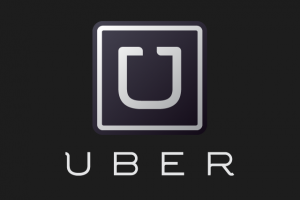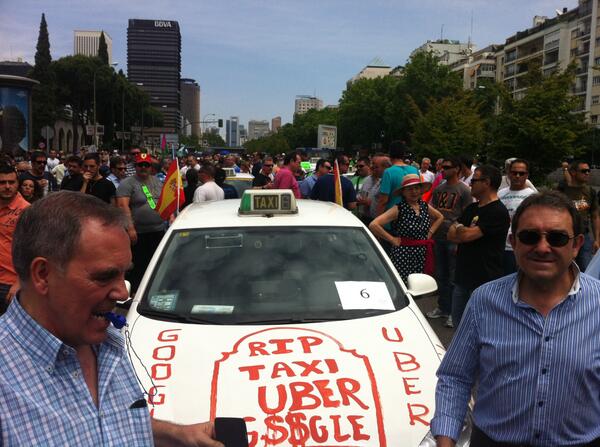 The weekend can’t come soon enough for the ride-sharing app Uber. Disaster is unfolding across continents for the fast-growing San Francisco-based startup recently valued at €40.000.000.000.
The weekend can’t come soon enough for the ride-sharing app Uber. Disaster is unfolding across continents for the fast-growing San Francisco-based startup recently valued at €40.000.000.000.
- On Monday, Uber was banned in New Delhi after a driver allegedly raped a female passenger. On the same day, the Dutch courts ruled that Uber’s operations in Holland are in violation of Dutch law and the company will be subject to immediate fines if they continue to operate the UberPop service. And in the US, the city of Portland, Oregon filed a lawsuit calling Uber a “substantial threat” to the public.
- On Tuesday, Spain declared that Uber drivers did not have official authorization and a judge in Madrid has ordered Uber to halt operations across the country until a taxi association lawsuit can be heard in court. Also on Tuesday, Thailand made a universal ruling to ban Uber’s service across the country and Vietnam is currently putting the company in its regulatory crosshairs.
- On Wednesday, California prosecutors sued Uber over the legitimacy of their driver background checks and other allegations related to false advertising.
- Tomorrow, a Paris court prepares their own announcement on whether to allow or halt the technology company’s operations in France.
Well, that’s quite a week, and it’s only Thursday. Uber is not known for backing down from government regulators and they’re certainly not afraid to be the bad guy, despite their CEO’s recent promises to clean up their image.
Madrid judge’s ruling was “inconsistent with broad political acknowledgment in Spain and across the European Union on the benefits of sharing economy services,” per Uber’s official statement.
“We’ll defend ourselves in anyway we can legally,” says Susanne Elias-Stulemeijer, an Uber spokeswoman in London. She added that the company has not been contacted by the Spanish judge.

Thousands of taxi drivers just marched down Madrid’s Castellana as part of their “war against @Uber”
There’s no denying that Uber has been a prominent and polarizing figure in the news lately for anyone with even a remote interest in tech, taxis, startups or the sharing economy. You either view Uber as illegal, unfair and unsafe OR they simply represent a changing of the guard, and are seen as positive disruptors and transportation innovators.
Regardless of your personal stance, Uber is operating illegally in Spain and in many other cities around the world. Furthermore, their arrogant “screw you, we’ll do it anyway” culture hasn’t made them many friends in their short tenure. We’ll see if Uber continues to snub their nose at local laws and regulations as they bulldoze their way across the planet, but their strategy is creating a lot of legal woes in its wake.
Uber is not the problem
However, it’s important that everyone stay focused on the bigger picture. Regulators have to remember that Uber, the company, is not the problem. The problem is occurring at the nexus of new technology and out-dated laws. Regulators can only hold back the tide of innovation for so long so they have to move quick to find a sustainable, fair and safe solution for all parties involved.
Uber’s technology is not their competitive advantage, in fact it’s a commodity that can be built for $399. What makes Uber #1 in this space is their billion dollar marketing machine. If Uber were to disappear tonight, tomorrow there could be 10 more companies operating in the exact same way.
Time will tell if the massive bets placed on the early favorite will pay off. Those of us who remember Napster can recall that when it comes to disruptive innovation that kills large incumbents, it doesn’t work out so well for the first-mover.
For Uber, they better learn, and learn quick, how to operate in Spain (and in 250 other locations) the right way.
For more on this story:
http://www.nytimes.com/2014/12/10/technology/uber-is-ordered-by-spain-and-thailand-to-halt-operations.html?_r=0
http://www.bbc.com/news/business-30395093
Image credit: Reuters







Leave a Reply